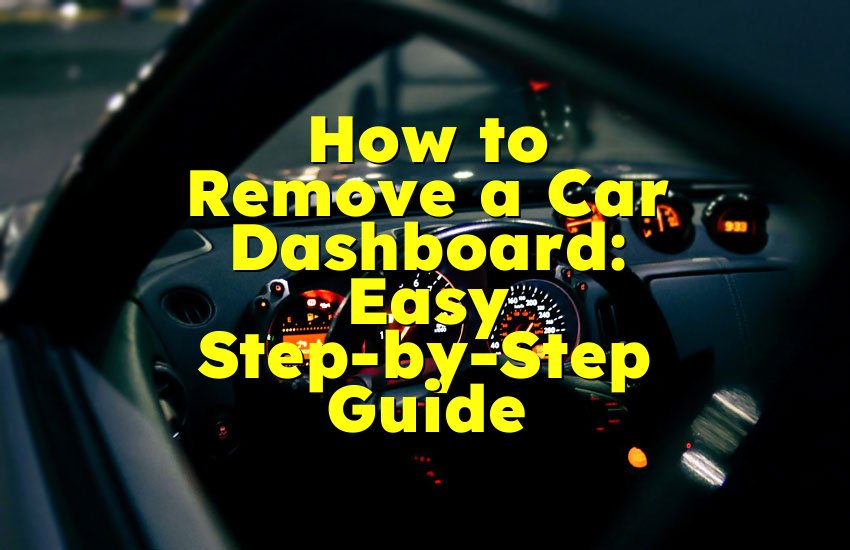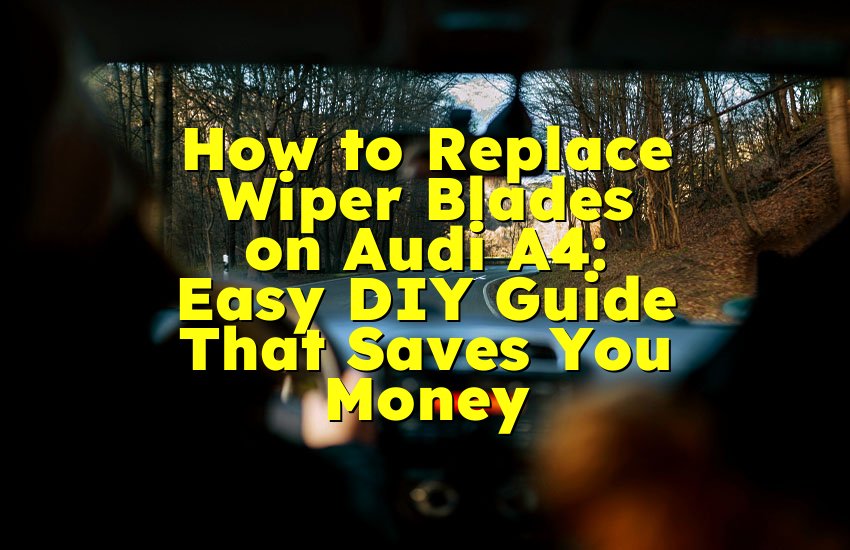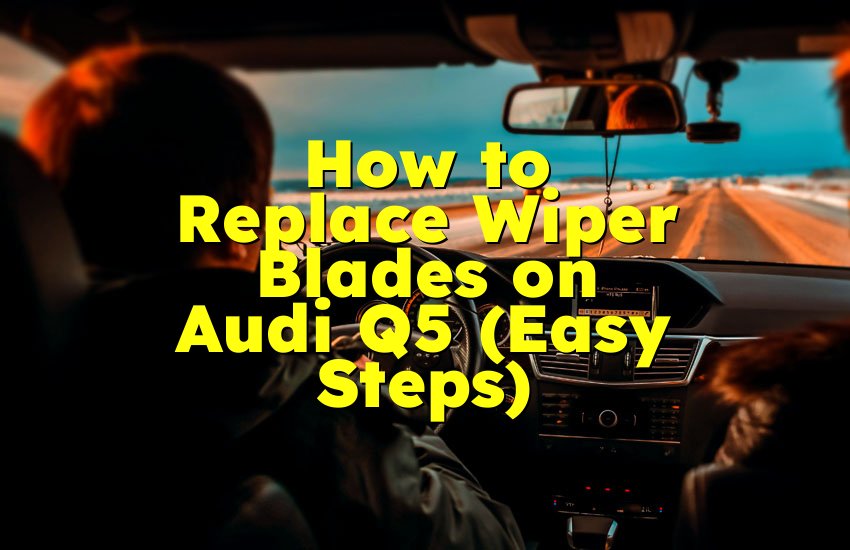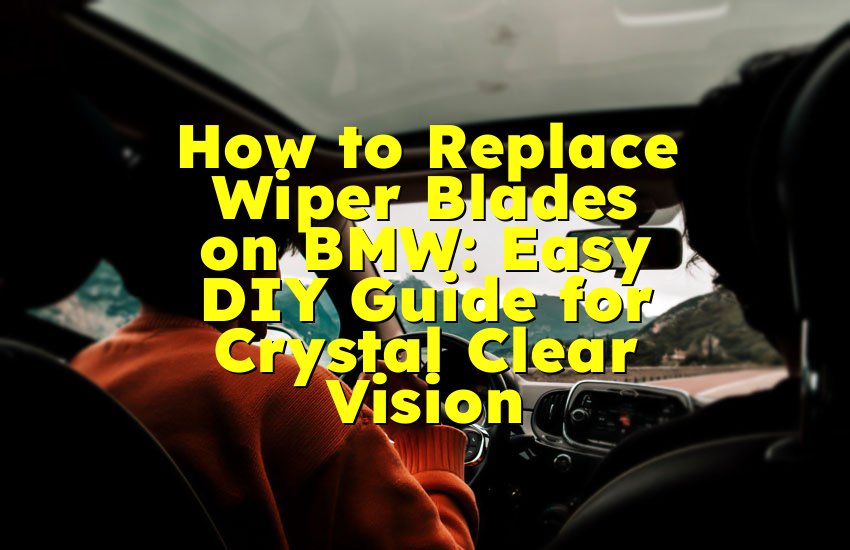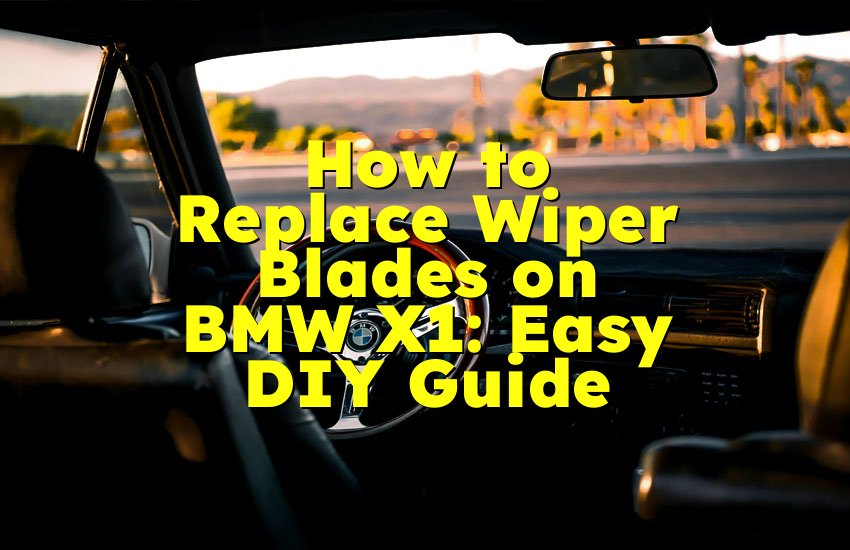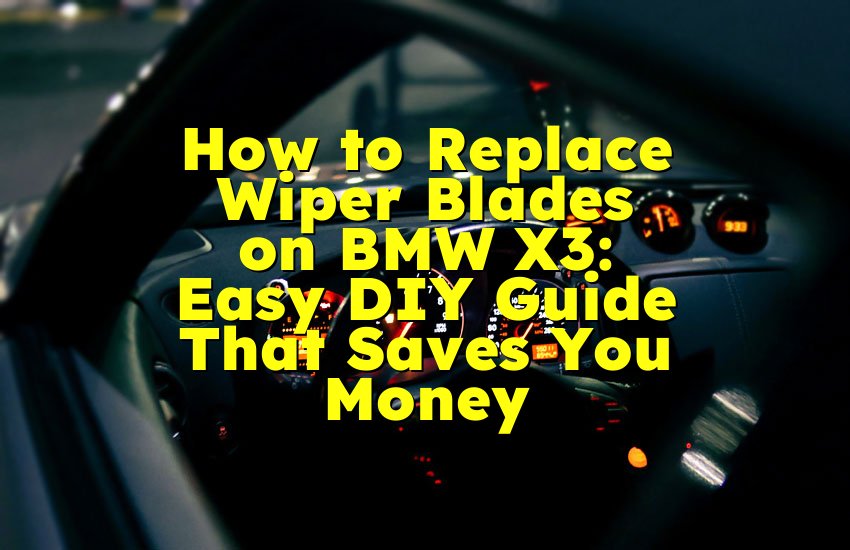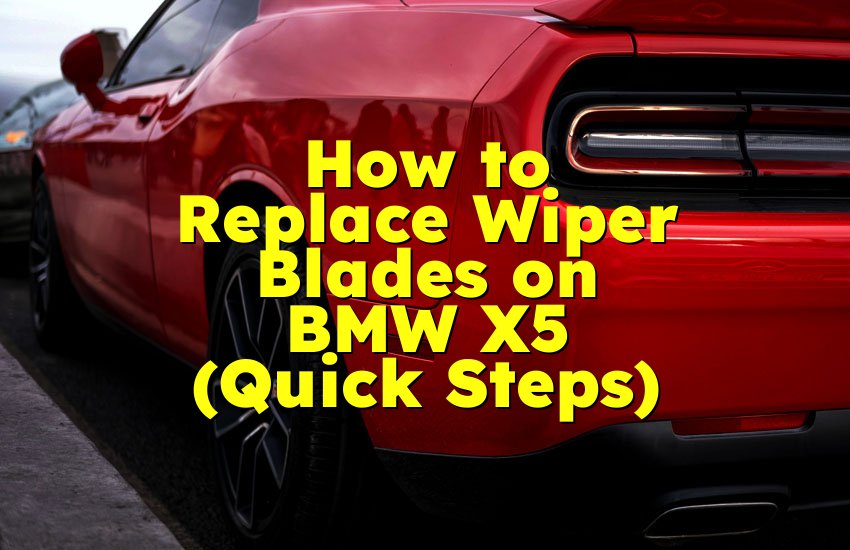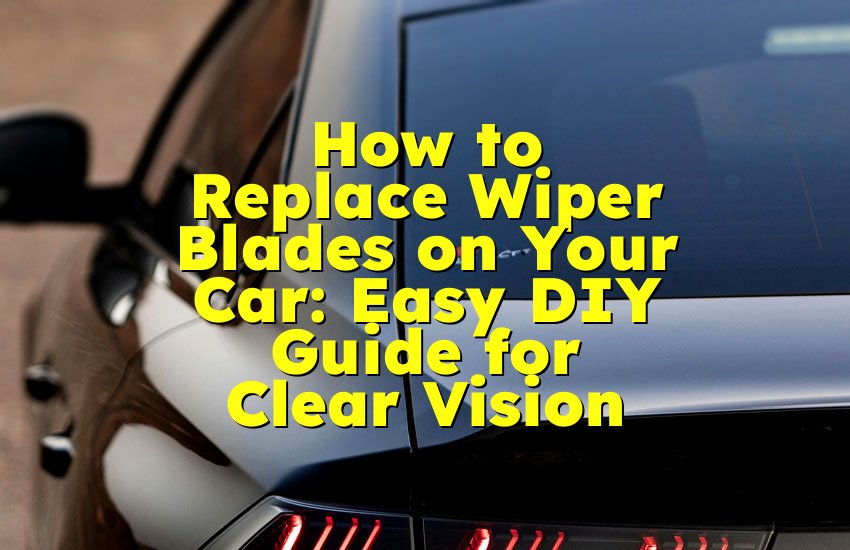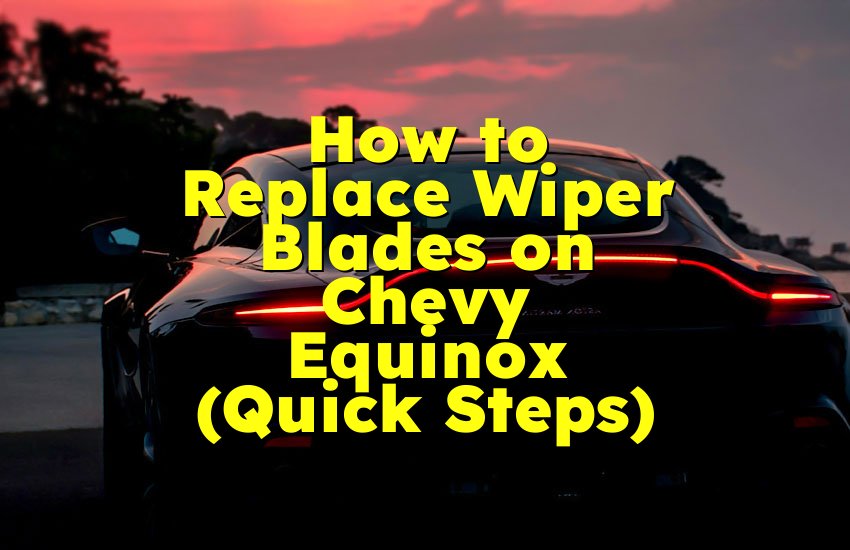As an Amazon Associate, I earn from qualifying purchases at no extra cost to you.
Does Parking on Grass Cause Car Rust and Kill the Grass? Here’s What You Need to Know
Parking on grass may seem like no big deal, right? It's convenient, especially if you're out on a nature walk or need a quick spot in your backyard. But what if I told you that your car and your lawn might not be too happy about this? There's a lot more going on than you might think, so let's dive into the details of what happens when you park on grass and why it's important to consider the consequences.
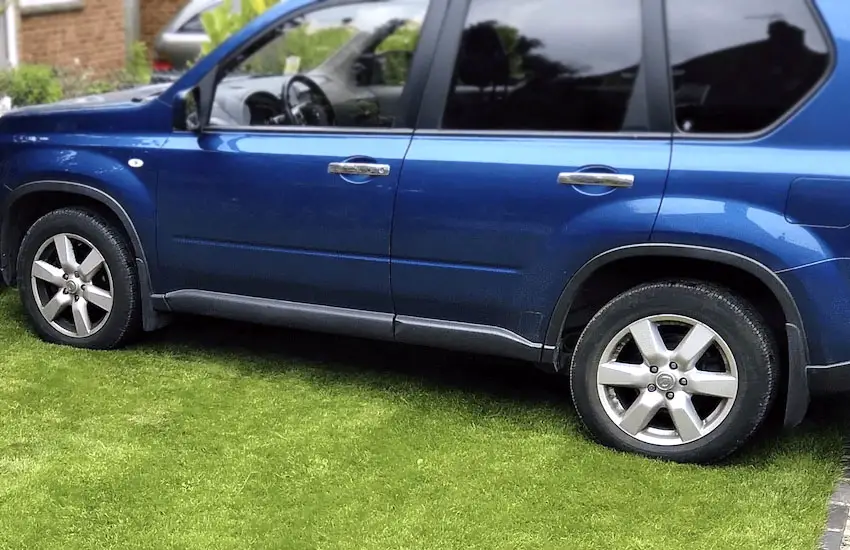
Understanding the Impact of Parking on Grass
You're probably no stranger to the idea of parking on grass. Whether it’s parking in your yard, the side of the road, or maybe a spot near a park, it's easy to assume that it’s a harmless thing. But the reality is, both your car and the grass could be facing some long-term effects you may not have thought about.
First, let's talk about rust. This common problem for car owners isn't just about getting caught in the rain or having a chip in the paint. Parking on grass can also contribute to rust and deterioration over time. How, you ask? Well, the moisture and organic materials found in the grass can create the perfect storm for your car to start rusting slowly. And let's not forget about the grass itself. It may look fine for a while, but the weight of a parked car can cause damage that you may not see until it's too late.
In this blog post, we'll cover everything you need to know about how parking on grass affects both your car and your lawn. Let's break it down and find out why this is an issue worth thinking about.
Does Parking on Grass Contribute to Car Rust?
When we think about car rust, most of us picture a rusty old car sitting by the ocean, where salty air makes everything corrode. But did you know that parking your car on grass can also lead to rust? It's not just about getting caught in the rain or leaving your car out in the elements. The combination of moisture, dirt, and even plant matter can cause your car to slowly deteriorate. Let me explain why this happens and how it relates to parking on grass.
Moisture and Grass Interaction
The most obvious reason parking on grass can lead to rust is the moisture. Grass, especially in the morning or after rainfall, is covered with moisture that doesn't easily evaporate. When you park your car on this wet surface, the moisture can get into areas of your car that aren’t sealed properly, like under the wheel wells, the bottom of the doors, or around the exhaust system. Over time, this constant exposure to moisture will start to break down the metal parts of your car. The dirt and organic material from the grass can make the situation even worse, because they can trap moisture in places where it might otherwise dry out.
Accumulation of Organic Matter
Another sneaky cause of rust is the accumulation of organic matter, like leaves and soil, around your car. As the grass grows and decomposes, it can release particles and microorganisms that find their way to your car. These organic materials can get stuck in small crevices around your car, creating an environment where rust can thrive. You might not notice it right away, but after several months or years of parking on the same spot, these tiny particles can lead to significant rust formation, especially on parts of the car that are lower to the ground.
Long-Term Exposure
Imagine parking on grass day after day, week after week. Over time, your car is continuously exposed to the moisture and organic material from the grass. If you don’t regularly clean these areas or protect them with rust-proof treatments, it won't be long before rust starts to form. It might begin as tiny spots, but it can spread quickly, especially if it goes unnoticed.
This is why many car experts recommend parking your vehicle in a dry, paved area to prevent rust from forming in the first place. Even if you’re parking on grass for convenience, it's good to be aware that your car could be suffering more than you realize.
How Parking on Grass Affects the Health of Grass
Now that we know parking on grass can be a problem for your car, let's talk about how it impacts your lawn. It's easy to think that the grass will bounce back once you move your car, but the truth is, parking on grass can have some pretty serious consequences for your lawn.
Compacting the Soil
When you park on grass, the weight of your car puts pressure on the soil beneath it. Over time, this pressure compacts the soil, making it harder for water, air, and nutrients to reach the roots of the grass. This soil compaction can significantly reduce the health of your lawn. Without proper air and water flow, the grass roots can’t get the nutrients they need to thrive. As a result, the grass becomes weak, patches may start to form, and eventually, your lawn could turn into a dry, brown mess.
Lack of Sunlight
Another issue with parking on grass is that the car blocks the sunlight from reaching the grass underneath. Grass needs sunlight to photosynthesize and grow, so when your car is parked over it, the grass can’t get the light it needs. If you park in the same spot regularly, you might notice that the grass in that area starts to turn yellow and die off. It's essentially being suffocated by the weight of your car and the lack of sunlight.
Damage from Oil and Fluid Leaks
Cars aren't perfect machines, and sometimes, they leak small amounts of oil, coolant, or other fluids. If you park on grass and these fluids leak out, they can harm the grass by changing the pH of the soil or introducing chemicals that inhibit growth. Even small leaks can have a big impact over time, killing the grass in that area and leaving behind dead patches.
Long-Term Effects on Lawn Appearance
If parking on grass becomes a regular habit, you'll notice long-term effects on the appearance of your lawn. The grass will become thinner and patchy, and eventually, you might have a permanent bald spot where your car always sits. Lawn care becomes a lot more complicated when you have these damaged areas, and you might need to reseed or even replace the sod altogether. This can be costly and time-consuming, especially if you don't take proactive measures to avoid parking on grass in the first place.
The Long-Term Effects of Parking on Grass and Car Condition
We've already covered the immediate effects of parking on grass, but what about the long-term damage? Let's take a deeper look at how this habit can impact both your car and your lawn over the years. If you're parking on grass regularly, you might notice that things start to deteriorate in ways that go beyond simple aesthetics.
Car Condition: Rust, Decreased Value, and Performance
Long-term exposure to moisture and organic material from the grass will lead to rust formation, but it doesn't stop there. As rust spreads, it can eat away at critical parts of your car, such as the frame, suspension components, and undercarriage. Not only does this weaken the structural integrity of your vehicle, but it can also affect its overall performance. Parts like the brakes or exhaust system can corrode and become less effective, potentially compromising safety and fuel efficiency.
This damage can lower your car's resale value, too. A rusted car might look fine on the outside, but underneath, it's slowly falling apart. When you go to sell it, potential buyers will be turned off by the condition of the car, and you might end up with a much lower offer than you expected.
Lawn Health: Permanent Damage and High Costs
As for your lawn, the long-term damage can lead to permanent soil compaction and grass death. While reseeding and aerating the lawn might help in the short term, constant parking in the same spot will likely create a cycle of damage that's hard to break. The cost of repairing your lawn after years of parking on it can add up, especially if you need to replace large sections of sod or invest in specialized treatments to restore soil health.
Ways to Minimize Damage While Parking on Grass
So, what can you do to minimize the damage if you absolutely have to park on grass? Luckily, there are some strategies you can use to protect both your car and your lawn.
Use a Parking Mat or Grass Protector
One simple solution is to invest in a parking mat or grass protector. These mats are designed to spread the weight of your car evenly across the grass, preventing soil compaction. They also allow water to drain more efficiently, so your grass can still get the nutrients it needs. Some mats are even made from eco-friendly materials, so they won't harm the environment.
Move Your Car Regularly
If you don't park in the same spot every day, your lawn will have a chance to recover between parkings. Try to move your car around so that different parts of the grass take on the weight. This gives the soil a break and allows the grass to get the sunlight and nutrients it needs to thrive.
Regularly Clean Your Car
To prevent rust from forming, make sure to clean the areas underneath your car regularly. Pay special attention to the wheel wells, exhaust system, and other low-lying areas where moisture and dirt can accumulate. By keeping your car clean, you reduce the risk of rust forming and help prolong its life.
Use Rust-Proof Coatings
Applying a rust-proof coating to your car's undercarriage can provide extra protection against rust caused by parking on grass. These coatings form a barrier between the metal and the moisture, making it harder for rust to take hold. While this may not eliminate the problem entirely, it can reduce the effects of parking on grass over time.
Alternatives to Parking on Grass for Car and Lawn Preservation
If you're concerned about the long-term effects of parking on grass, there are alternatives that can help preserve both your car and your lawn.
Paved Driveway or Parking Area
The best solution is to park your car on a paved surface, like a driveway or parking lot. These surfaces allow water to drain away and don't put pressure on the soil, so they won't cause soil compaction or damage to your grass. If you have the option to park on a paved area, it's definitely worth considering.
Gravel Parking Areas
If you don't have a paved driveway, consider creating a gravel parking area. Gravel allows for better drainage than grass and won't compact the soil in the same way. It's an affordable alternative to paving and can be an effective way to protect your lawn while still providing a place to park.
Covered Parking Options
If you live in a rural area or have limited parking options, you might want to consider building a carport or other covered parking solution. This can protect both your car and your grass, as it shields your vehicle from direct contact with the ground while still allowing for good airflow and drainage.
I hope this post helped you understand the potential issues with parking on grass. Whether it's your car's health or your lawn's beauty at stake, there are ways to minimize the damage and keep both in great shape. Be mindful of where you park and take steps to protect your car and lawn so you can enjoy both for years to come.
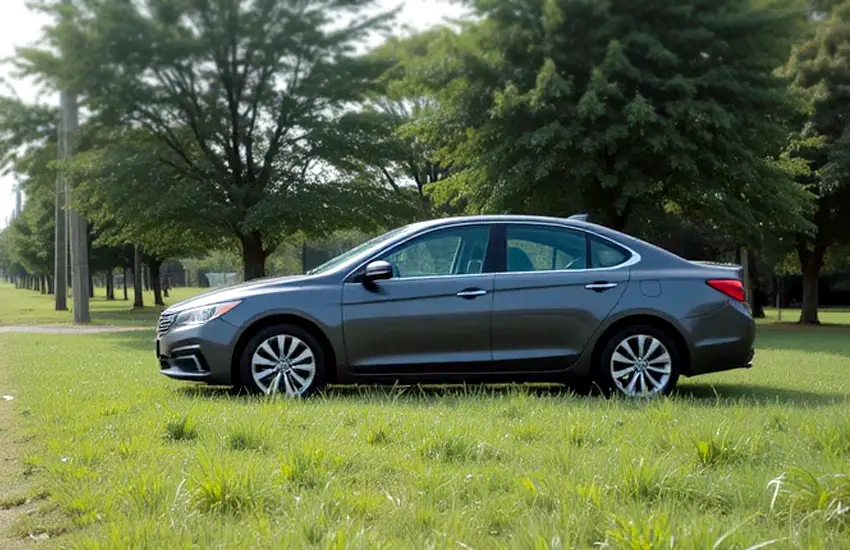
Frequently Asked Questions
Is it bad to park on grass every day?
Parking on grass every day can lead to soil compaction, lack of nutrients for the grass, and rust formation on your car over time. It's best to avoid doing it regularly.
Can parking on grass kill your lawn?
Yes, parking on grass can kill your lawn by compacting the soil and preventing water, air, and sunlight from reaching the grass roots.
Do I need to move my car if I park on grass?
Yes, moving your car regularly can help prevent damage to the grass by allowing it to recover and get the sunlight it needs to grow.
Is it necessary to clean my car after parking on grass?
It's a good idea to clean your car regularly, especially areas under the car that come into contact with moisture and organic materials from the grass.
Can I prevent rust if I park on grass?
Applying a rust-proof coating and cleaning your car regularly can help prevent rust, but it's better to park on a paved surface if possible.
Do I need a parking mat to protect my lawn?
A parking mat can help distribute the weight of your car and prevent soil compaction, making it a good option if you need to park on grass.
Is it better to park on gravel than grass?
Yes, gravel allows for better drainage and doesn't compact the soil as much as parking on grass, making it a better option for preserving both your car and lawn.
Can parking on grass damage my car's suspension?
While the main issue is rust, the weight of the car on grass could also cause some damage to the suspension over time if parked regularly on uneven surfaces.
Meta Description: Discover how parking on grass can lead to car rust and damage to your lawn. Learn effective solutions for preservation.



